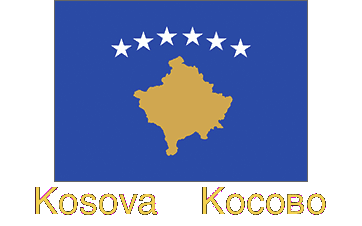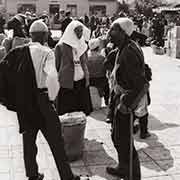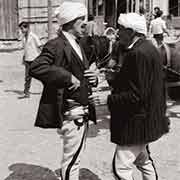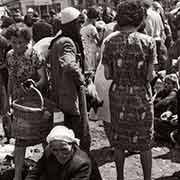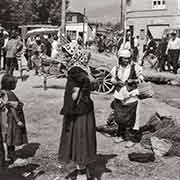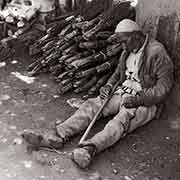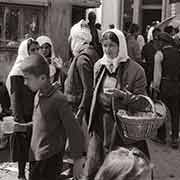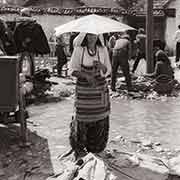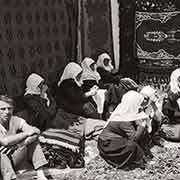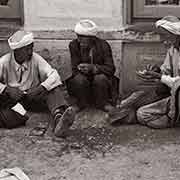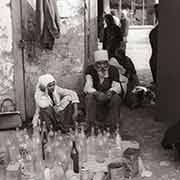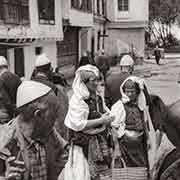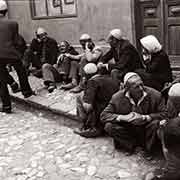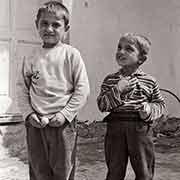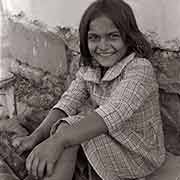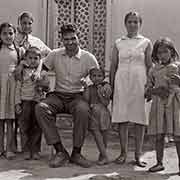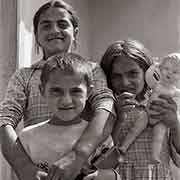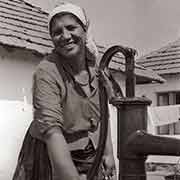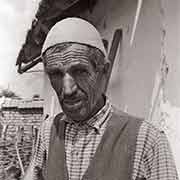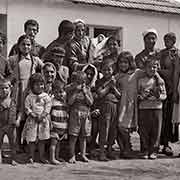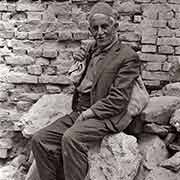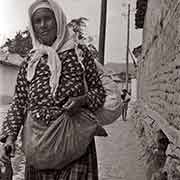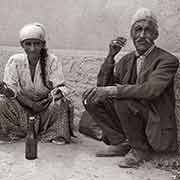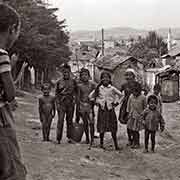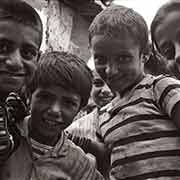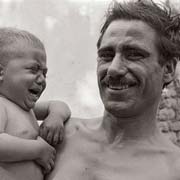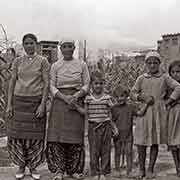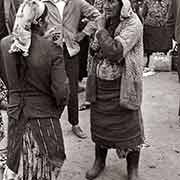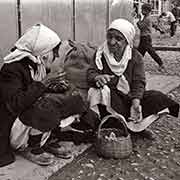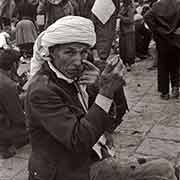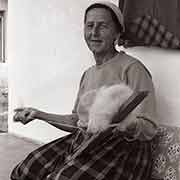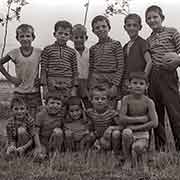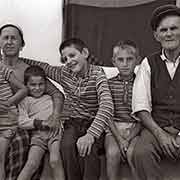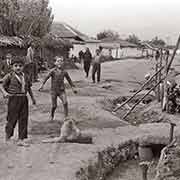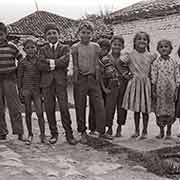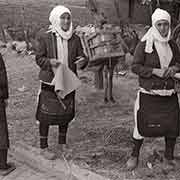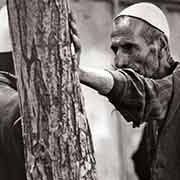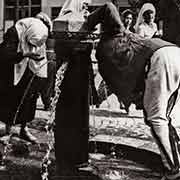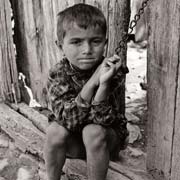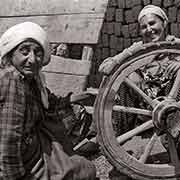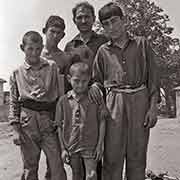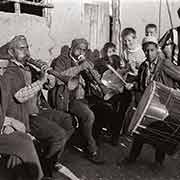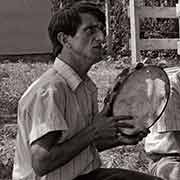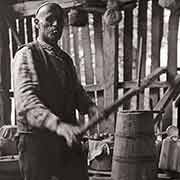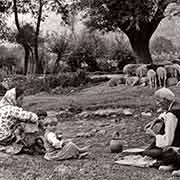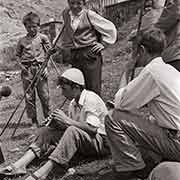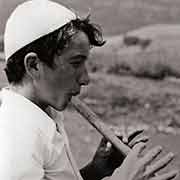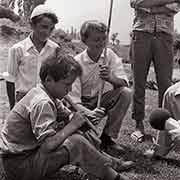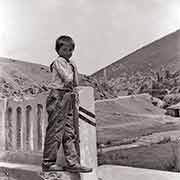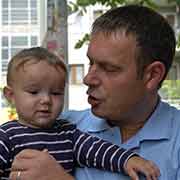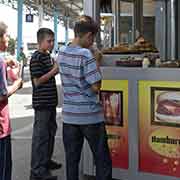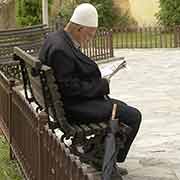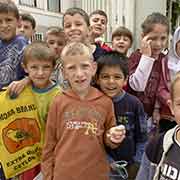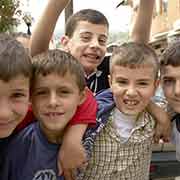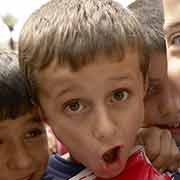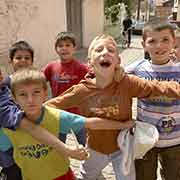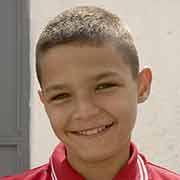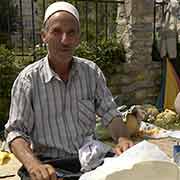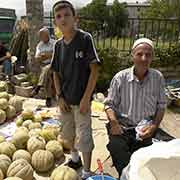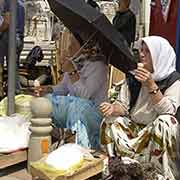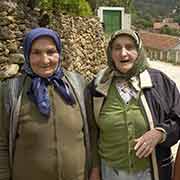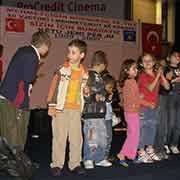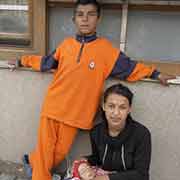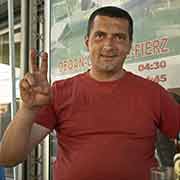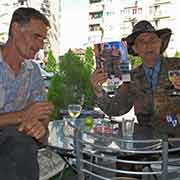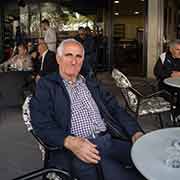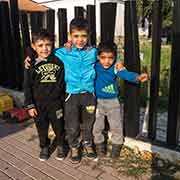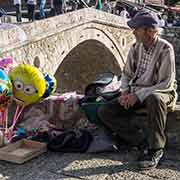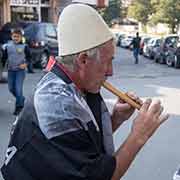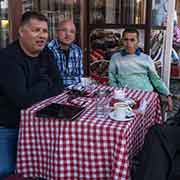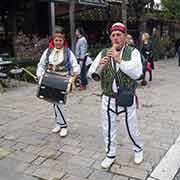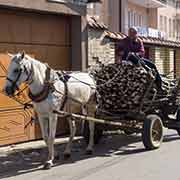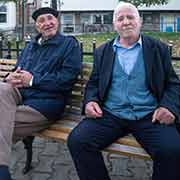Photos of The People of Kosovo, Kosovo
The People of Kosovo
Kosovo has a mixed population of about two million, the result of the turbulent history of the country. As a result of the many centuries as part of the Ottoman Empire the overwhelming majority of the population is ethnic Shqiptar or Albanian, speaking the northern Gheg dialect and are of the Muslim faith. Especially around Prizren are Turkish speaking people, left over from Ottoman days.
you may then send it as a postcard if you wish.
The Roma or Romani people are an ethnic group of Europe tracing their origins to medieval India. Linguistic and genetic evidence indicates the Roma originated from the Indian subcontinent, emigrating from India towards Europe from the 11th Century. Traditionally nomadic but now mainly settled, they have endured discrimination and prejudice over the centuries. But they have contributed immensely to the culture of the Balkans; without them, Balkan music would never have been the same. They are often referred to as “Gypsies”, a term originating from the Greek word Αιγύπτοι (Aigyptoi). This was in the erroneous belief that they originated in Egypt, and were exiled as punishment for allegedly harbouring the infant Jesus.
The Ashkali are an Albanian speaking ethnic minority of Kosovo and Albania, usually considered Albanized Roma. But some people call themselves “Egyptians” (Albanian: Egjiptian) claiming they came from Egypt, supposedly via immigration through Palestine. This seems unlikely and may derive from the same mistaken belief that “Gypsies” came from Egypt. In Kosovo, the Ashkali appeared to be aligned with Albanians before the Kosovo War. However, there are reports of mass expulsion of Ashkali along with Roma from Kosovo after the war. Many Ashkali refugees have now settled in Central Serbia and Vojvodina. In Serbia and Montenegro, they are known by other names like Black Montenegrins and Romano-Palestinians.
There are also villages with Bosniaks (Bosnian Muslims, speaking Serbo-Croat) and Goran (Macedonian). The remaining Serbs are, since the war of 1999, concentrated in enclaves across Kosovo, North Kosovo being the largest one; Gračanica, only 5 kilometres south of Prishtina, has become the national and political centre of the remaining Kosovo Serbs who live south of Mitrovica. There are still some 120,000 ethnic Serbs in Kosovo: 40,000 in the north on the border with Serbia and the remainder in enclaves around the country.


